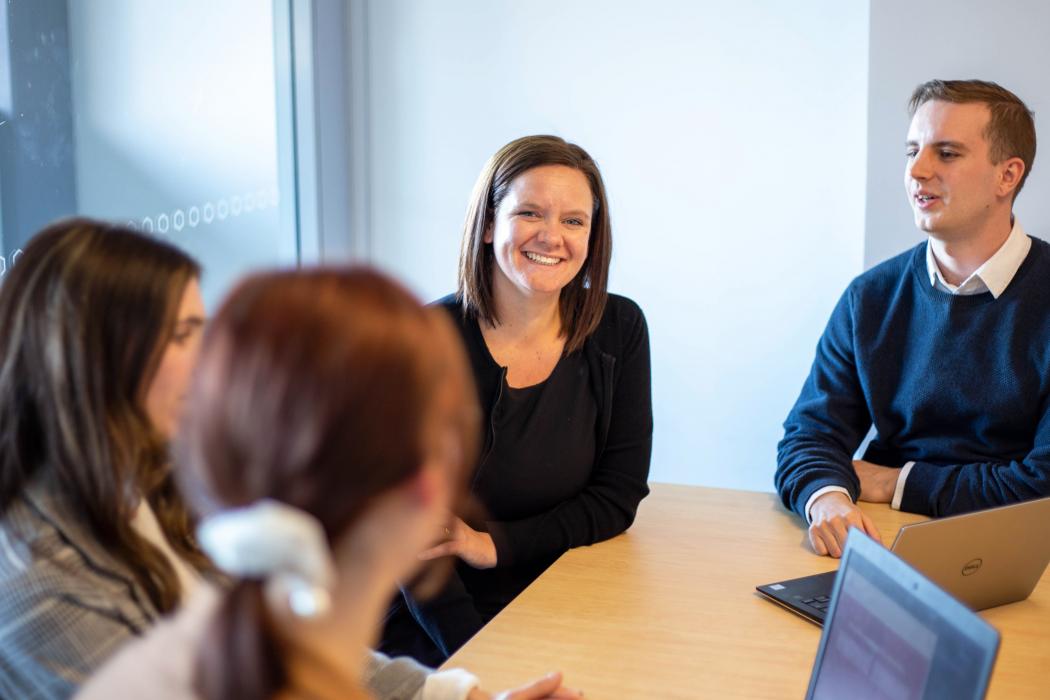Supporting the business: Why non-engineering functions are crucial to Northrop’s way of working


At Northrop, as you’d expect in any engineering consultancy, we have engineers who design projects and solutions, and we have teams drafting those designs.
Then we have people performing the other functions a business needs, from HR to finance, legal support to reception, and everything in between.
All of these functions fall under ‘business support’, which, within Northrop, is considered just as vital as engineering and drafting.
“We don’t have a vertical hierarchy here,” says Justin Davies, Chief Operating Officer at Northrop. “We have a very flat structure, and business support sits alongside everything else. It’s a critical function. The people doing those roles are crucial, because if they’re not there nothing else happens.”
Walking the talk
Natalie Butler, Northrop’s Business Support Manager in Brisbane, wears many hats. From finance to people and culture, training and development to IT. She’s one of several people in the company who seamlessly keep the business running.
Working alongside principals (owners), engineers and drafting teams every day, Natalie says the functions she undertakes are genuinely valued across the board.
“There’s a sense that you’re a valued professional, and we’re often sought out by people for our opinion and assistance. And, vice-versa. I love getting some insight from our engineers on my projects as they offer a different perspective.
Respecting what all people bring to the business is a value held deeply here at Northrop. And it comes from our leadership. It’s not just something written on paper, we actually walk the talk. And that’s very different from most businesses!”
By working this way, we find that people across the whole organisation have a far greater understanding of the importance of the business support roles, and the business impact they have.
Business support – a vital cog
And that impact of having a team with a full working knowledge of everything going on in the business is significant, says Jay Tickle, Office Manager at Northrop’s Sydney office.
“One of the things that people within the business appreciate is that we’re the people who have the answers – and if we don’t know the answers, we’ll find the answers,” says Jay, who was promoted to the role after beginning his career at Northrop as a receptionist.
“This enables the team to concentrate on their specialty, rather than wasting time trying to figure something out that they shouldn’t really have to think about.”
Spotting and seizing the opportunity
Jay says from day one he’s been given the backing to step up and take responsibility, and Laura Brest, Business Support Manager in the Newcastle office, has enjoyed a similar experience.
“I’ve lost count of the times I’ve been encouraged to do something I didn’t think I could do, step up and take some more responsibility,” she says.
Laura, who manages a team of seven business support staff, says, “we work closely with the business leaders and support each of the disciplines that serve in this office. We work closely with the project teams and make sure everything is functioning. We then make sure we share that knowledge, so we all learn, and everything we do becomes more seamless and more effective.”
“The benefit of working this way is that we are across everything that goes on across the business,” agrees Jay. “When a client calls, we know who they are, what we’re working with them on, and who’s handling it from Northrop. Building those relationships makes a significant difference in how we’re perceived and how we operate.”
Realising potential
The elevation of business support as a critical function in the business is, of course, very deliberate, and stems from an internal value of ‘realising potential’.
Realising the potential in our clients, realising the potential of the projects we deliver, realising the potential of the communities that we live in.
And realising the potential of every single person who works here at Northrop, too.
“We’re a people business. The whole industry works around relationships and the quality of those relationships, and therefore the realisation of the potential of our people is at the heart of the organisation,” says Justin.
“In reality that’s been our ethos from the days in which we had 10 or 20 people working here – they were encouraged to get out there and give it a go in the knowledge they’d be supported, and that’s just as important now as it was back then.”


